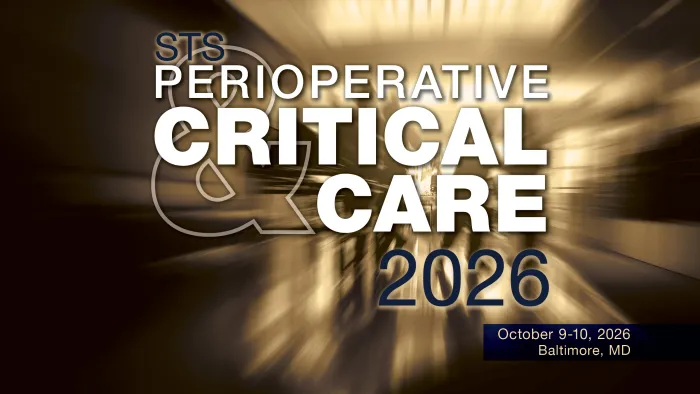STS 2023, SAN DIEGO – “Quality people, consistency, communication, and collaboration” were declared the winning combination in the debate “For the Post-operative Patient in the ICU, Who Is in Charge and Who Is the Consultant? Surgeon or Intensivist?” on Day 1 of STS 2023.
Over the last two decades, changing reimbursements, time demands on surgeons, and hiring practices have pushed surgeons and intensivists together for post-surgical care of patients—not always with the best results. Today, with a host of different circumstances at different institutions, significant variations in post-operative critical care exist across the country.
Moderator Joseph Zwischenberger, MD, a cardiothoracic surgeon at University of Kentucky HealthCare in Lexington, stood ready to blow his harmonica in case tempers flared. While there were distinct differences of opinion, Andrea J. Carpenter, MD, PhD, a cardiothoracic surgeon and Assistant Dean for Health System Science at University of Texas Health Science Center in San Antonio (UTHSC) and Martin Zammert, MD, a surgical critical care physician who heads the cardiothoracic unit at Lahey Hospital & Medical Center in Burlington, Massachusetts, also highlighted the vital need for true surgeon-intensivist partnership.
“The surgeon knows the patient’s anatomy, physiology, and social issues best,” Dr. Carpenter said. “It is the surgeon who takes responsibility and criticism for poor outcomes. So in those cases where there is not clear agreement on what the next best step is, the ultimate decision needs to be made by the surgeon.”
A clear answer to the question posed did not emerge from the research both experts presented on length of stay, in-hospital mortality, and readmission rates. They turned to their real-life experiences to make their cases about the best direction and who should have ultimate authority in the ICU—where patient status can change rapidly and quick decisions need to be made about everything from mechanical ventilator support to choice of statins and vasopressors to care withdrawal.
Dr. Zammert had another perspective. “Bad outcomes in the ICU are mainly non-surgical, so I don’t think the question should be ‘Who is in charge?’ I think the question we should ask ourselves is, what kind of intensivists do we want in our units?”
Both agreed that cardiac critical care is distinct from other intensive care, and that intensivists need training in identifying and avoiding the postoperative complications that commonly occur following cardiac surgery.
Intensivists need specific proficiencies in cardiac intensive care, and surgeons need to understand ICU post-operative care in order to foster mutual trust and respect. Dr. Zammert added that understanding how each type of specialist thinks and reasons, and keeping each other informed, create a foundation for a good relationship.
“We are here to be a partner with you, not an opponent,” Dr. Zammert added. “This should never be an arranged marriage.”
Along with audience members, both discussants advocated for structured rotations and experiential cross-learning for both specialties in the ICU and the OR. Dr. Carpenter, who is also Residency Program Director of Integrated Thoracic Surgery at UTHSC’s Long School of Medicine, noted that in this effort nationwide, “some programs are doing it better than others.”
